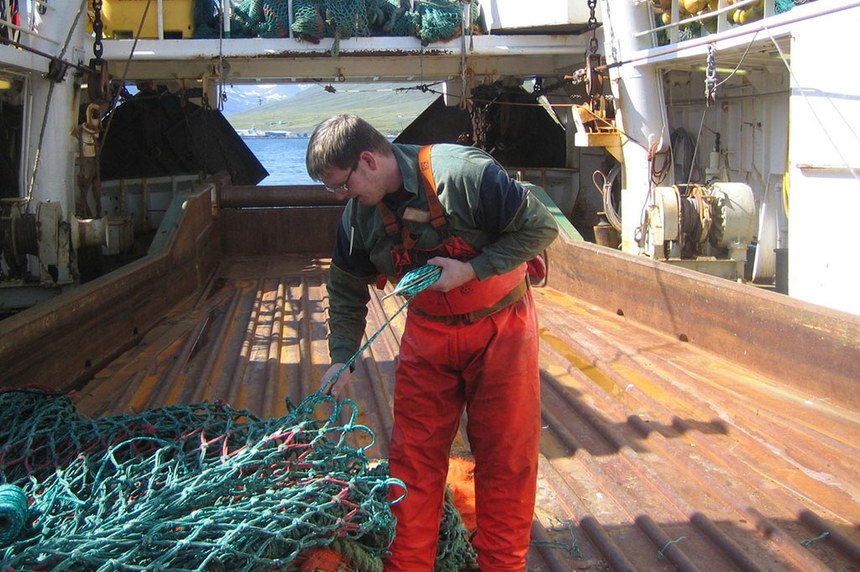Overview
Fisheries are composed of one or more parts, each of which is entitled to receive an MSC certificate. These parts or “units” are defined by their target stock(s), fishing gear type(s) and if relevant vessel type(s), and the fishing fleets or groups of vessels.
Attention
Some or all units that participated in this fishery are now covered by another assessment. Please see the ISF Iceland multi-species demersal fishery for more information.
Catch by Species
| Species | Reported Catch Year | Metric Tonnes |
|---|---|---|
| Atlantic wolffish (Anarhichas lupus) | 2018 | 9,501 |
| Saithe(=Pollock) (Pollachius virens) | 2018 | 58,820 |
| European plaice (Pleuronectes platessa) | 2018 | 8,177 |
| Ling (Molva molva) | 2018 | 7,008 |
Information is provided by an independent Conformity Assessment Body as live weight (the weight of species at the time of catch, before processing) and where a fishing season covers multiple years, the end year is given as the reported catch year. Additional information is available in the latest report, see the assessments page.
Eligibility, client groups and vessel lists
A fishery may choose to define the members of the fishery certificate. These members can be vessels or other client group members (e.g. companies that own vessels and/or companies that are named as eligible to handle certified product covered within the fishery certificate scope). Please refer to the fishery certificate statement on additional product specific eligibility criteria (e.g. product eligibility limitations, eligibility date, exclusive points of landing and the point where Chain of Custody certificate is required). Please consult the fishery Public Certification Report for product eligibility rationale.
| Documents | Published on | Files |
|---|---|---|
| List of client group members | 10 Jul 2019 | 1 files |
About this Fishery
Saithe (also called coley) is a whitefish closely related to pollock, common in the North Atlantic. The fish mature at around 5-7 years and spawn along coastal banks. Following spawning, larvae settle in inshore areas and migrate to the coastal areas at 2-4 years of age. Smaller saithe feed on crustaceans, while larger saithe feed more on fish.
Saithe occurs all around Iceland but is less common in colder waters at the north and east coasts. It is found at different depths, from the surface to 450m. The size of saithe in Icelandic catches is generally 70-110cm; the largest fish caught around Iceland was 132cm.
The Icelandic Sustainable Fisheries (ISF) saithe fishery lands around 50,000 tonnes of saithe each year using various fishing methods, including bottom trawls, handlines, longlines and Danish seine nets.
While stocks were assessed as sustainable and well managed, the fishery certification includes an agreement to put in place further conservation and management measures for vulnerable marine habitats. This will ensure that delicate structures such as hydrothermal vents and large sponges receive a formal protection in the fishery management.
The ling component of the fishery entered assessment in 2016.
ISF Iceland fisherman image © Gunnar Þorsteinsson
Market Information
Saithe is primarily processed for export, especially in frozen fillets, though some is also exported salted, dried and fresh. The largest single markets for Iceland saithe are Germany, the Netherlands, Spain and Nigeria.
